How Normal Are Your Parenting Habits?
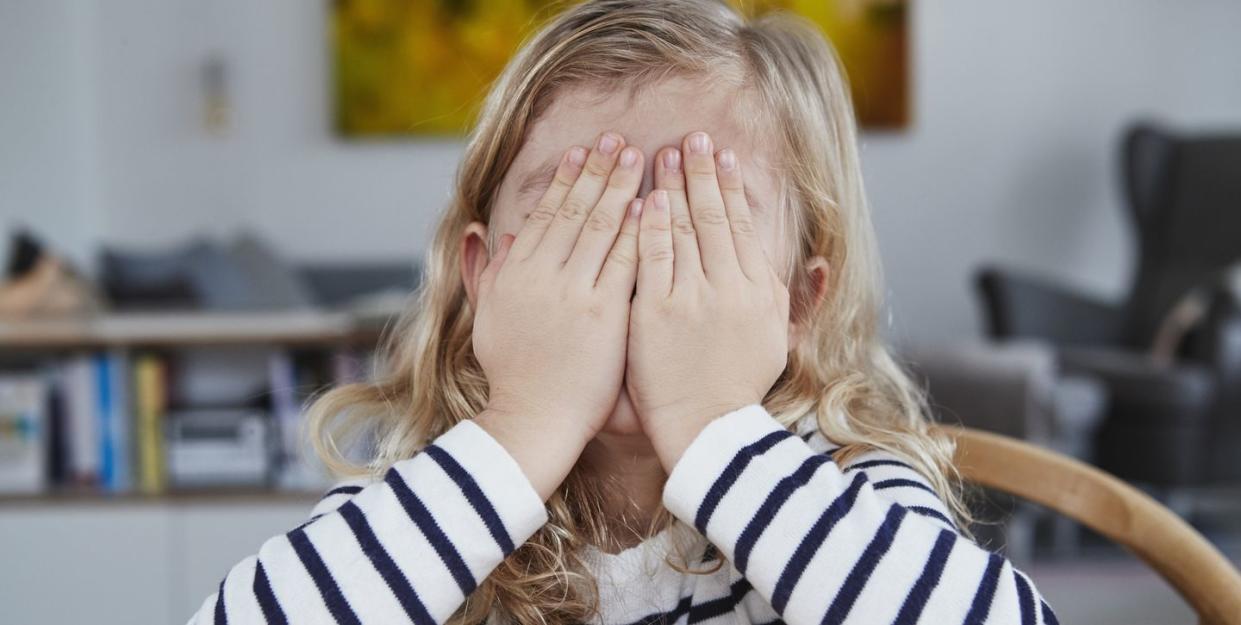
There's no official rulebook when it comes to parenting, so the "right" response to every tricky scenario and loaded question (from "Why can't I have ice cream for dinner?" to "Where do babies come from?") is ultimately up for debate.
Wondering where you stand in comparison to other moms and dads? To see how today's parents really feel about some of the age-old dilemmas that come with the job — as well as some new issues that have started cropping up (hi, nonstop YouTube playlists!) — vote in the polls below, then check out what the experts have to say about these common parenting questions.
Raising Infants and Toddlers
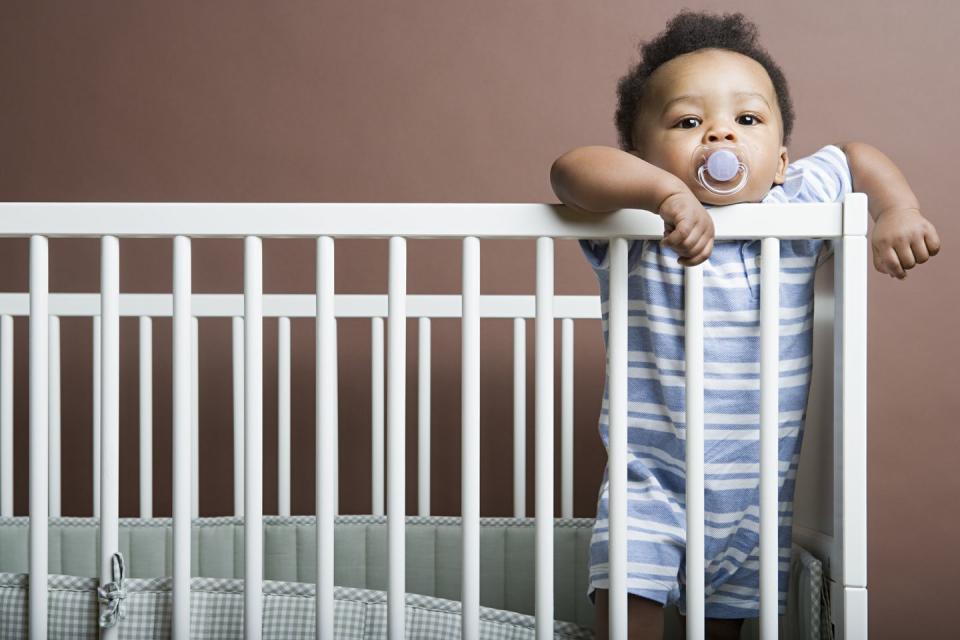
Experts say: First things first, parents should not try to sleep train their infant until she reaches 4 to 6 months of age, says Dr. Robin Jacobson, a pediatrician at Hassenfeld Children’s Hospital at NYU Langone. "Crying is a baby’s way of communicating with their parents and allowing their parents to know that they need something," she says. That said, "Sleep training allows babies to learn to self soothe so when they wake up in the middle of the night they are able to put themselves back to sleep."
While both pediatricians and parents have different approaches, Dr. Jacobson recommends placing your wide-awake baby in her crib after feeding her and changing her diaper. "Parents should check and reassure the baby every five minutes the first night and then increase the time between checks on subsequent nights," she advises.
Experts say: "Bed-sharing is not recommended for any babies," AAP quotes pediatrician and SIDS researcher Rachel Y. Moon, MD, FAAP as saying. "Only bring your baby into your bed to feed or comfort."
If there's a chance you might doze off with your baby alongside you, she recommends making sure there aren't any pillows, sheets, blankets, or other items that could cover your baby's head nearby. If you accidentally fall asleep, move your baby to his or her own bed as soon as you wake up. As for co-sleeping with older kids, that's your call!
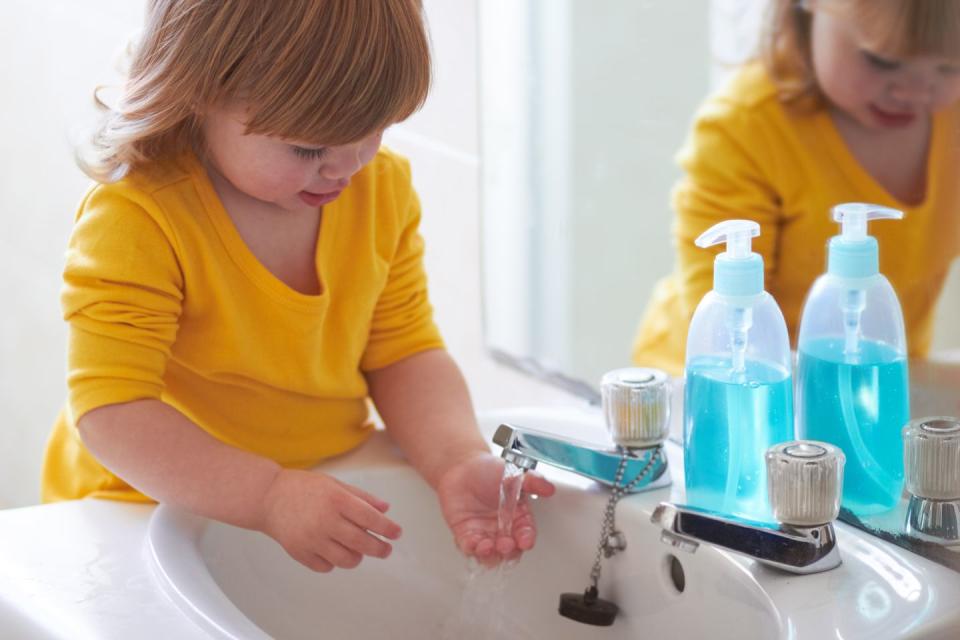
Experts say: Everyone hates changing diapers, but don't push your kid to use the potty before he's ready. Most children develop the physiological ability to "hold it" around 18 months, according to the AAP, but they generally don't reach the cognitive, social, verbal, and emotional levels required to do so until after they turn 2 years old.
The AAP states that parents have the best chance of getting their kids successfully toilet trained when every piece of the puzzle falls into place. As for when that is? It depends on every individual child. Some toddlers just don't want to sit still long enough to do their business!
Experts say: It's okay to do, but you should take some precautions, says Dr. Jacobson. "By kissing babies and children, one can spread cold sores, strep, stomach viruses, bacterial infections, and respiratory viruses," she explains. "Parents should limit friends, extended family, and little children from kissing their kids."
Raising School-Age Children

Experts say: The Centers for Disease Control (CDC), American Academy of Sleep Medicine (AASM), and the American Academy of Pediatrics (AAP) all agree that 5-year-olds need 10 to 13 hours of sleep per day, including naps. Even grade schoolers should log nine to 12 hours per night. That means if you wake your child up at 7 a.m. for school, you would need to tuck him in at 9 p.m. at the latest.
Experts say: "Parents should avoid making separate meals for children who are picky eaters," says Stephanie Wagner, PhD, child psychologist at the Child Study Center at NYU Langone Health. But really, the key is how you react as a parent when your kid refuses to eat something. "Staying calm and avoiding threats and punishments is important to avoid increasing stress and negative experiences during meals," she explains.
Still having trouble making broccoli look appetizing? Try these other tips:
Present new foods multiple times even if the child has refused it.
Involve kids in the process of preparing food.
Serve unfamiliar foods with preferred foods.
Don't let kids snack heavily between meals.
Dine with your kids so you can model eating different foods.
Make the whole family eat the same meal.
Bring up any concerns with your pediatrician.
Experts say: Most family researchers agree that spanking isn't an effective way to discipline children, and it may even have negative effects in the long run. Data on more than 160,000 children collected over a 50-year period linked spanking with aggression, antisocial behavior, mental health problems, low self-esteem, negative parent-child relationships, and impaired cognitive ability, according to a 2017 study in the Journal of Family Psychology.
More recent research from the University of Michigan also found that adults who were spanked as children were more likely to feel depressed, attempt suicide, drink heavily, or use illegal drugs. That's not to say you shouldn't provide your kids with firm boundaries and rules, but current evidence suggests physical punishment isn't the way to go.
Experts say: "A timeout is an effective and safe way to decrease problematic behavior, although it's often misused," Dr. Wagner says. "In order to use this strategy effectively, parents should make sure the timeout is brief, used in response to specific behaviors, and absent of positive or negative attention."
Dr. Jacobson agrees that consistency with timeout-warranting actions is key. "If one parent allows the child to jump on the couch and the other tells the child not to, the child is getting mixed messages," she explains. "Timeouts give the child and parents time to calm down in a situation and allows the child to learn right from wrong."
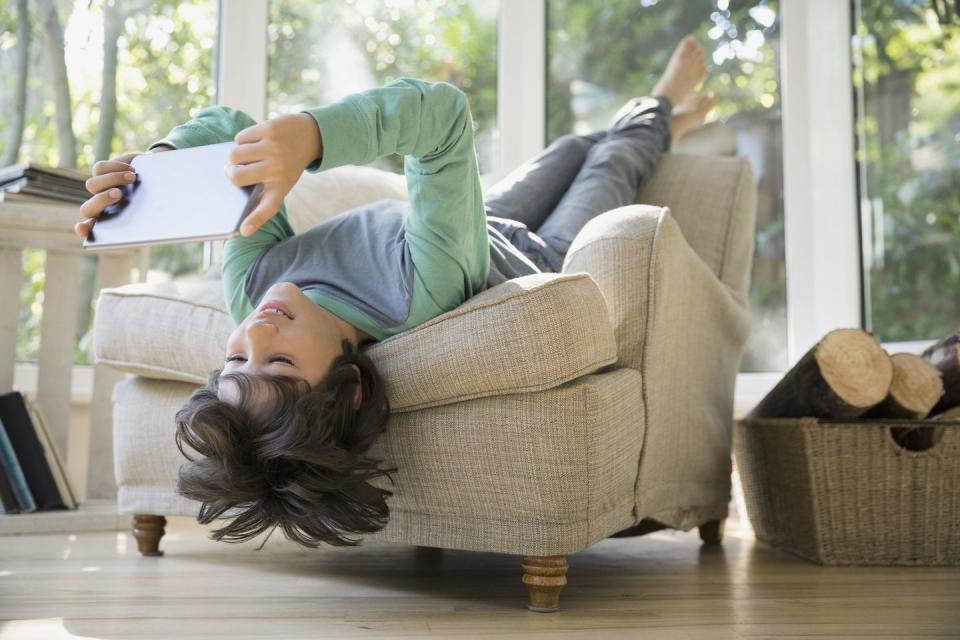
Experts say: Only three states currently have laws restricting the age at which children can stay at home alone. (Illinois has the strictest at 14, Oregon's starts at 10, and Maryland has the lowest, at 8.) Outside of the official rulebook, it's up to parents to gauge their kids' maturity.
The Child Welfare Information Gateway asks parents to consider questions like the ones below before leaving kids on their own. (You can get the full list here.)
Does your child obey rules and make good decisions?
How does your child respond to unfamiliar or stressful situations?
Will there be other kids? How many and how old?
Does your child know what to do if a visitor comes to the door?
How safe is your neighborhood?
Does your child know his or her full name, address, and phone number?
Does your child know where you are and how to contact you and other trusted adults at all times?
Experts say: Kids as young as 2 years old can help with jobs like putting toys away, and children should progressively pitch in more as they get older, according to the AAP. Chores can teach kids responsibility and initiative — but experts warn that parents should take care not to overburden children with unrealistic expectations.
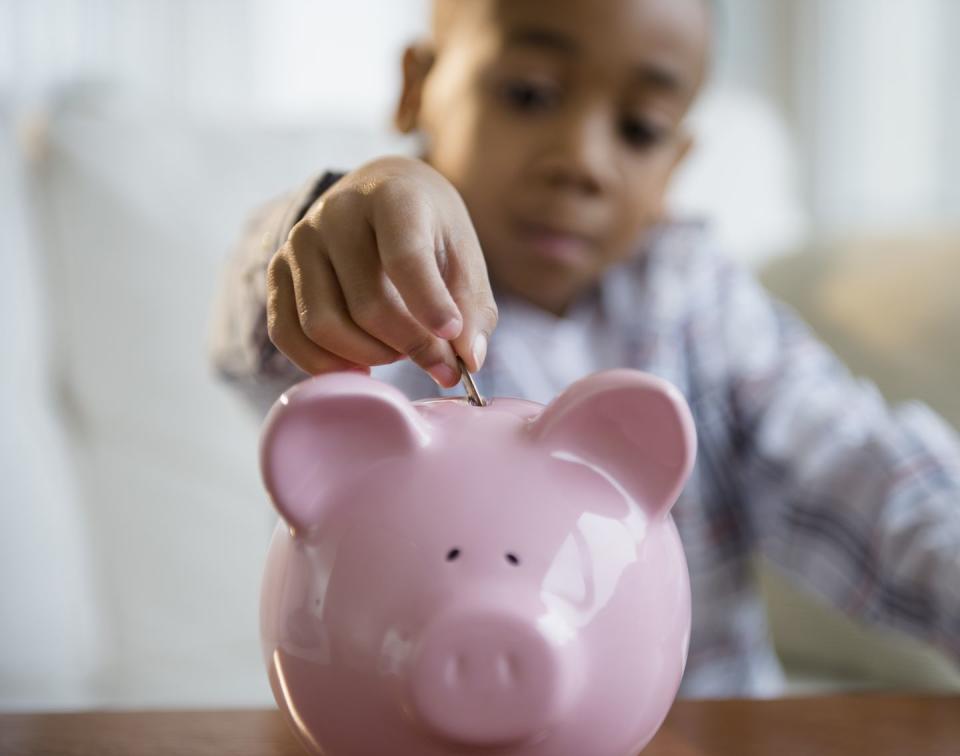
Experts say: Whether you put requirements behind it or not, data indicates that children who receive an allowance feel smarter about money (40% versus 25%) and believe they're more knowledgeable about personal finances (32% versus 16%), according to a 2015 study from T. Rowe Price.
One idea: Assign some basic responsibilities as unpaid (e.g., making your bed) and others as paid (mowing the lawn), so kids can earn part of their allowance.
Experts say: Last December, parents spent an average of $330 total on their children, according to a RetailMeNot survey. Give that the average U.S. family has two or three children, that's about $110 to $165 each.

Experts say: "Parents should tell the truth about Santa when a child is ready for it," Dr. Wagner recommends. "When children begin to question Santa, parents should find out what they think. Some children may have questions but may not be ready to give up the tradition."
That's not to say parents should continue the myth longer than necessary: "If a child says that they do not think Santa’s real, parents should tell the truth," she adds.
Experts say: It's awkward, but you have to do it. "Openly addressing the all-too-human questions of sexual development, sexual desire, and the nature of the adolescent’s developing sexual identity are critical," the AAP says. "The traditional 'birds and bees' lecture (or pamphlet handed to the child to read on her or his own) on reproductive basics is completely inadequate."
Experts say: Take advantage of teachable moments and talk to kids in an age-appropriate way, the AAP advises. That means starting in preschool with the proper names for body parts, and gradually teaching kids more before getting into details about sex and puberty at 8 to 9 years of age. Equally important: Kids should learn about STDs, contraception, and what healthy relationships look like — even if it's sometimes uncomfortable to talk about.
Raising Teens and Tweens

Experts say: The Federal Trade Commission doesn't issue age guidelines when it comes to children and cell phones. Instead, it advises considering your child's personality and maturity (as well as age) before buying one — and of course, using parental control and safety features when you do. You can also look into phones with limited internet access and restricted texting for younger kids. Also on your list of duties as a parent: warning them about dangers such as oversharing on social media, texting and driving, and cyberbullying.
Dr. Jacobson says she sees most parents give their children a phone when they enter middle or junior high school, but watch out: "Limit the time the child should use the phone," she advises. "Many children have problems with sleep because they are texting late into the night."
Experts say: A one-hour limit on screen time for kids older than 2 helps protect them from obesity, sleep problems, poor school performance, and risky behaviors, according to the AAP. With toddlers, you shouldn't let them use media by themselves and instead use devices as an opportunity to introduce high-quality programming or apps.
But if you're having trouble combating your high schooler's cell phone addiction, you're not alone. A whopping 25% of teens describe themselves as "constantly connected" to the internet.

Experts say: Based on the AAP guidelines, teens need 8 to 10 hours of sleep per night. That means if your high schooler's alarm goes off at 6:30 a.m. for a 7:30 a.m. school start time, he needs to fall asleep by 10:30 p.m. or earlier.
Experts say: The law is clear that the legal drinking age in the U.S. is 21, but underage use is more prevalent than you might think. One in six teens admit to drinking so much that they've experienced alcohol-induced blackouts, according to the AAP. Teen drinking also puts kids at higher risk of unprotected sex, sexual assault, and reckless driving, not to mention the disease risk associated with prolonged alcohol abuse.
The AAP advises staying firm on not allowing underage kids to drink, even if it's sometimes framed as a "safer" alternative to using other substances or drugs.
And finally ...
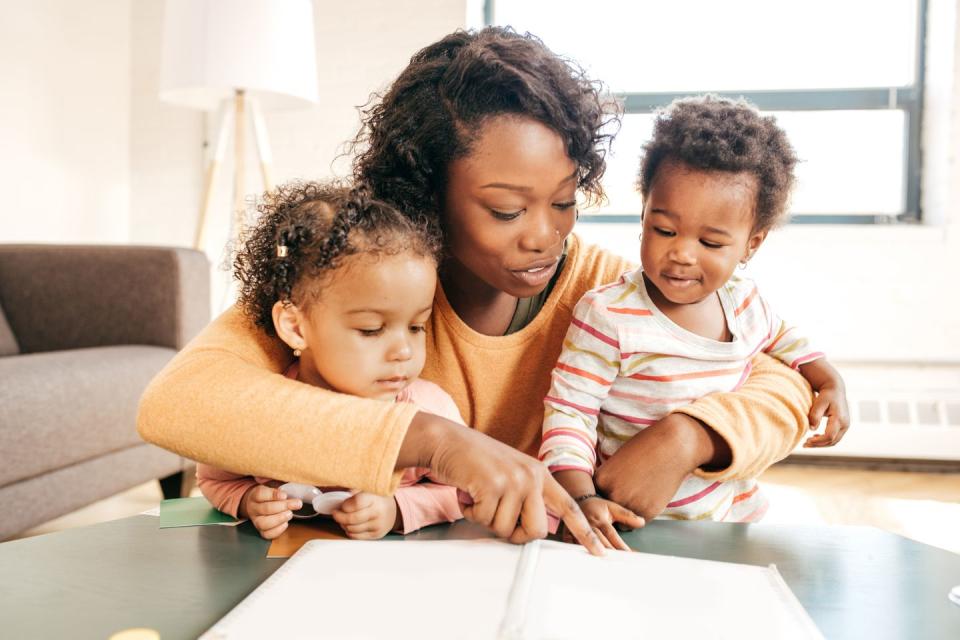
Experts say: If you think you're alone, you're not. "It's not politically correct to admit that you have a favorite child but it is normal," Dr. Jacobson states. "In many families, a parent's favorite child can change every few minutes."
You'll still want to keep that to yourself though. "When children realize that a parent prefers one child over another, it can cause problems in the family and increase sibling rivalry," she adds.
How do you think your parenting skills stack up?
You Might Also Like

